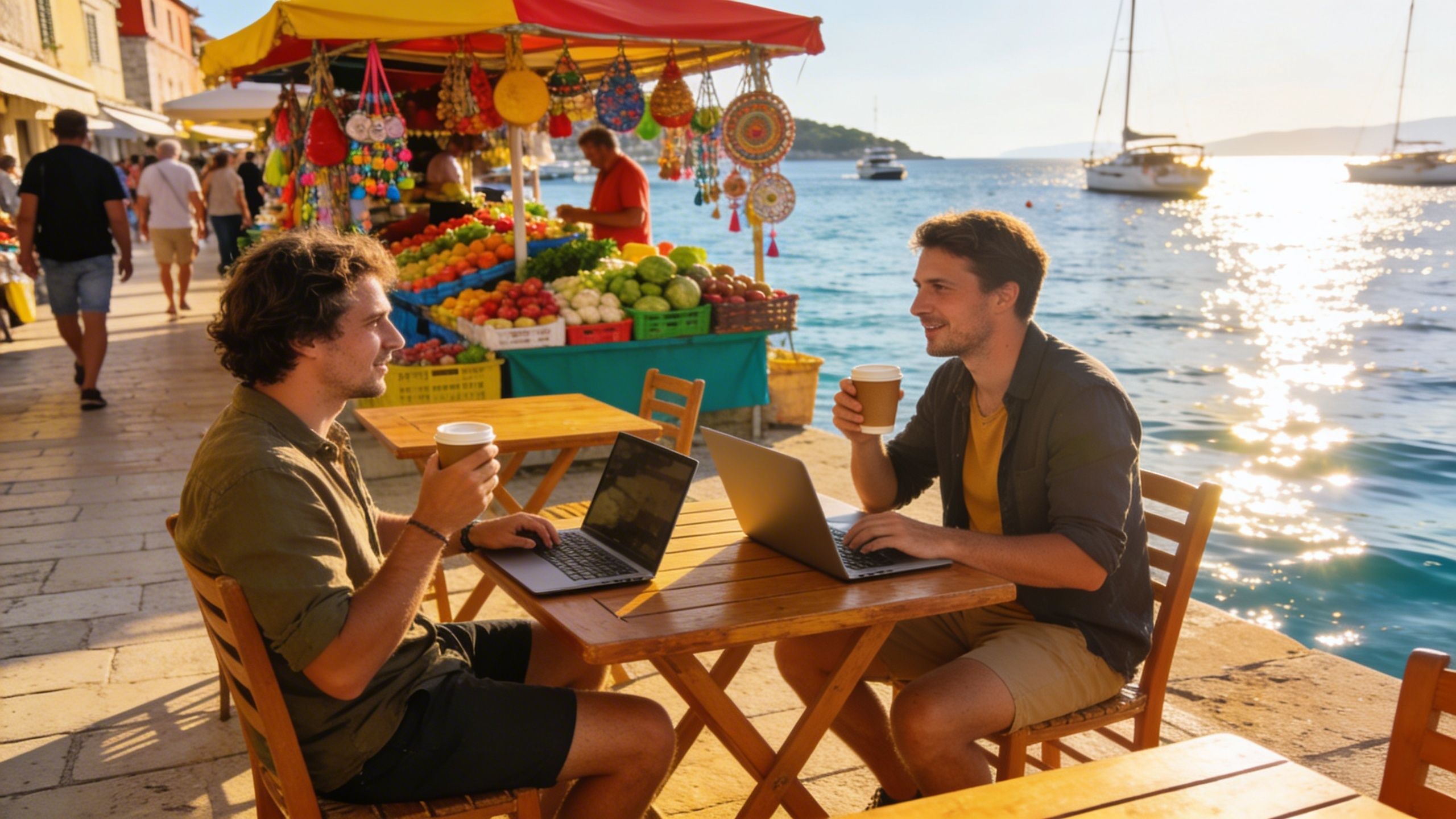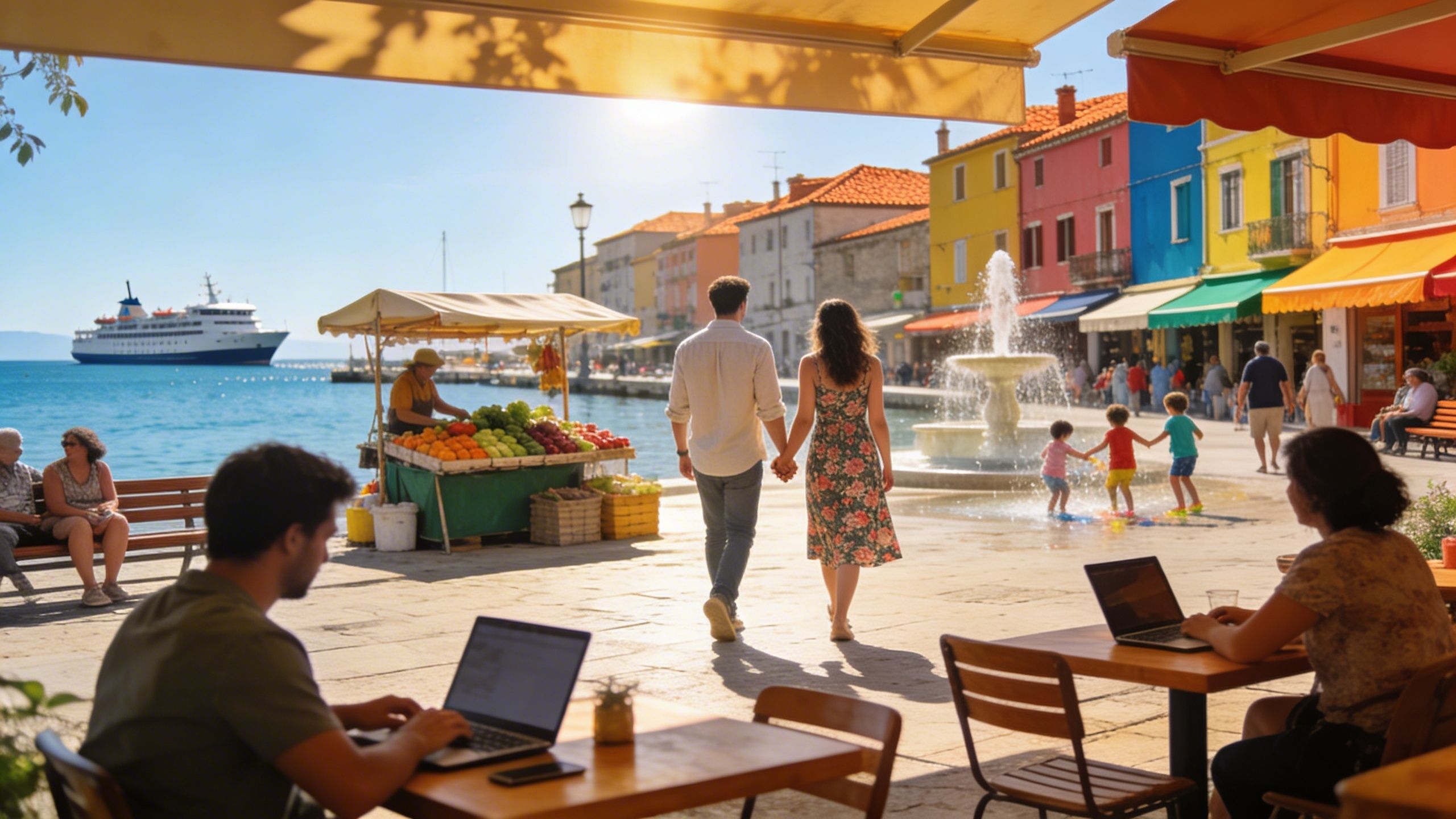Why Summer House‑Hunting in Croatia Backfires
Summer house‑hunting in Croatia often inflates offers. Use off‑season visits, targeted contingencies and local legal checks to win a fair deal backed by current market data.
Imagine sipping espresso on Split’s Riva in July, then signing an offer because the sea view made you giddy. That’s the summer house‑hunt trap: vivid days, inflated prices and sellers at peak confidence. This guide flips the romance into a practical offer and closing playbook so you can love Croatia without overpaying.
Living the Croatia life — what you'll actually feel

Croatia hums between old stone and Adriatic blue. Mornings bring market stalls in Dolac (Zagreb) and bakers firing burek, afternoons drift to beaches in Bol or Čiovo, evenings to tavernas full of grilled fish and rakija. The rhythm is seasonal: sultry, crowded summers and serene, community‑rooted winters that show the country’s true personality.
Neighborhood spotlight: Old Town Split vs. Bačvice beaches
Old Town Split is a mosaic of stone alleys, morning markets and rooftop terraces — perfect if you want history steps from your door. Walk five minutes to Bačvice and you’ve got a beach scene where locals swim year‑round. But watch price tags: proximity to waterfront and UNESCO sites pushes offers up fast.
Food, markets and the social glue
Weekends mean open markets — Hvar’s fish markets, Zadar’s olive stands, Pula’s artisan cheeses. These rituals shape community life and give buyers clues about year‑round livability: if a neighborhood shutters after September, it’s a holiday zone, not a true local neighbourhood.
- Lifestyle highlights: places & feels you’ll want
- Sip espresso at Split’s Riva; browse Dolac Market (Zagreb); swim at Zlatni Rat (Brač); dine at Konoba Mate on Hvar; catch a film at Zagreb’s Kino Europa; ferry‑hop to Krk’s coves.
Making the move: the offer to closing reality check

Dreams meet data here: coastal and island prices rose strongly in recent years while supply stayed tight, so offers need strategy not heart. Market reports show continued demand and policy changes (including property tax shifts) that affect holding costs — all reasons to slow down your summer impulse offers and bring a plan to the table.
Property types & what they mean for your life and offer
Stone coastal houses give postcard views but often need renovation and septic/utility work. New builds have VAT implications and can avoid transfer tax. City flats (Zagreb, Split) offer year‑round rental demand. Match the property type to your plan — live, rent, or hybrid — before you write an offer.
Working with local experts who know the seasonality
Local lawyers, notaries and agencies are your translators of both language and local pace. Non‑EU buyers face reciprocity and ministerial approvals; EU buyers have smoother paths. Use a lawyer to confirm land registry entries and reciprocity status before making an offer.
- Step-by-step offer & closing checklist
- 1) See property during off‑peak season (Oct–Apr) to check noise, services and true occupancy. 2) Commission a local title search and ask your lawyer about reciprocity/consent timelines. 3) Make a conditional offer with a short due‑diligence window (14–21 days) rather than a binding summer bid. 4) Add clear contingencies for utilities, building permits and coastal protection zones. 5) Arrange financing or proof of funds; new builds carry VAT while resales may have a 3% transfer tax. 6) Notarize the contract and register at the land registry — your lawyer should attend the final signing.
Insider knowledge: expat lessons, red flags and negotiation tricks
Expats often tell the same story: they fell for sea views in summer and later found seasons of silence, infrastructure limits, or unexpected taxes. Price trends show coastal hotspots appreciating fastest, which creates bidding wars. That’s when negotiation matters more than speed.
Cultural cues that change an offer
Sellers often expect face‑to‑face negotiations and value trusted local intermediaries. A polite in‑person conversation or an introduction from a local agent can soften terms. Also, be aware that some coastal owners rely on seasonal rentals — ask how many weeks the place is let to understand real cashflow.
- Red flags to pause on before you bid
- Missing building permits; unclear ownership splits (common in old stone houses); lack of mains sewage; listed/protected coastal protections; heavy short‑term rental dependence in the block.
Negotiation moves that actually work in Croatia
- 1) Offer outside peak season when sellers feel less urgency. 2) Present a clean, documented proof-of-funds packet — it reduces seller hesitation. 3) Use small, earnest concessions (quick deposit, flexible closing) instead of steep price drops. 4) Ask for seller repairs or notary fee sharing rather than only discounting price.
Longer term — think beyond the closing. Croatia’s proposed property tax reforms and tourism patterns change holding costs and neighborhood character. If you want year‑round community, prioritise inland‑adjacent towns, smaller islands with ferry frequency, or Zagreb neighbourhoods with stable rental demand.
What I’d do if I were making an offer tomorrow
I’d visit in October, walk the street at 8am and 8pm, hire a local lawyer to run a title search, and make a conditional offer timed with the seller’s calendar. I’d price in possible property taxes and seasonal vacancy, and structure contingencies for permits and utility checks. Then I’d sleep on it — the sea view will still be there in winter.
Conclusion: Croatia rewards patience. Summer seduction leads to rushed, costly offers. Use season‑aware inspections, local legal expertise and smart contingencies to convert romance into a confident purchase that fits your lifestyle.
Swedish, relocated to Marbella in 2018 to chase sun and property freedom. Focus on legal navigation and tax for Nordic buyers.


